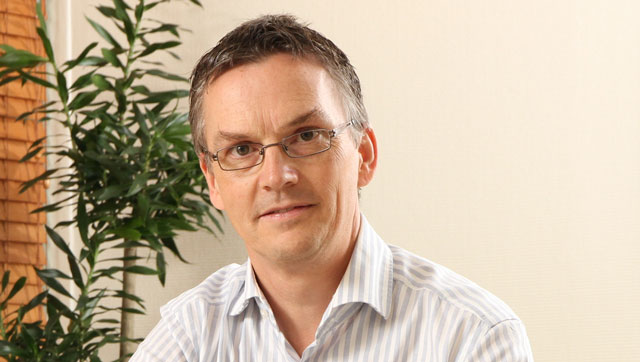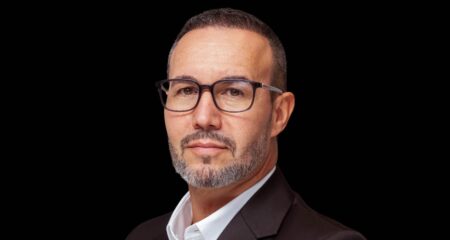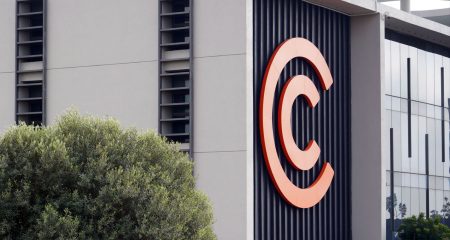
Cell C’s newly appointed chief financial officer, Robert Pasley, wanted to be a university professor, lecturing in theoretical physics, but pragmatism led him into the corporate world of finance and strategy.
Pasley completed a physics degree at the University of Exeter in his native UK. “I found it a fascinating subject,” he tells me in his office at Cell C’s Sandton headquarters. I wanted to be a professor of nuclear physics or something like that, but I quickly realised that you have to be at a completely different level to achieve that and I wasn’t going to be able to do it at quite the level I wanted to.”
His father was an academic — a lecturer in modern languages at Magdalen College in Oxford — so it “seemed like the thing to aspire to”. The love of physics clearly came from his mother, though. She studied physics at Oxford, though never put it to use professionally.
The young Pasley attended Dragon School in Oxford, later going to the elite Abingdon School.
Realising physics wasn’t a practical career course for him, Pasley enrolled to do his articles with Coopers & Lybrand. He spent four years at the auditing firm, which included a career-development secondment to South Africa in 1991, which saw him consulting to Telkom and other technology companies.
It was while working with Telkom on renewing its billing system that the young Pasley first came into contact with the team at the telecommunications operator that was preparing to launch South Africa’s first mobile phone operator, later named Vodacom.
“We happened to be on the same floor as their embryonic mobile division and they were looking for someone to do business planning and business models, which I started doing as a consultant from Coopers.”
When it became clear that Vodacom would emerge from Telkom as a separate company, the nascent business’s first finance director, Leon Crouse, offered Pasley a full-time job on his team. He remained part of this team until 2000, when he was appointed as head of strategy, a role he kept until 2004 when he resigned from Vodacom to pursue his own consulting interests.
“Vodacom was quite a rollercoaster ride,” he tells me, leaning forward in his chair. As Vodacom expanded, Pasley became involved in a variety of deals and opportunities, including the purchase of independent cellular service providers such as Teljoy and Cellphones Direct and Vodacom’s expansion elsewhere in Africa.
After 2004, he consulted independently, mainly transactional and advisory work in mobile telecoms in a range of African markets. He also continued to consult to Vodacom until as recently as 2011.
He joined Cell C in July 2012 as chief strategy officer, the same position he had held at Vodacom, and under the same boss: Alan Knott-Craig.
When Fabrizio Mambrini, Cell C’s long-serving chief financial officer, stepped down in January, Pasley was named to the position in an acting capacity. A replacement had been identified but, for reasons Pasley says he prefers not to disclose, they didn’t take up the post.
Knott-Craig decided to ask Pasley to take on the finance role, while retaining oversight of strategy. “The shareholders seemed comfortable with that, and I discussed it at length with my wife and we agreed that it would be okay. I try to balance work and family to a degree, and we agreed it would work from both sides.”
Also, he says, it’s Knott-Craig who drives Cell C’s strategy. “He looks to me for advice. It doesn’t have to be a full-time role.”

Since taking the finance reins at the beginning of the year, Pasley hasn’t had much time to rest. He’s been intimately involved in the recent US$350m equity investment into Cell C by Oger Telecom and in setting up a Nedbank-led long-term financing package of R2,2bn.
He says Oger’s commitment to Cell C is largely predicated on the company winning regulatory support in the form of procompetitive interventions such as asymmetric wholesale inter-network call fees that are skewed in favour of smaller players like Cell C. MTN and Vodacom will argue strongly against such intervention, especially in light of the fact that Cell C has been in the market for more than 12 years, but Pasley believes it’s necessary given that the company has been trying to compete “with one hand tied behind its back” since it was licensed.
But is there a plan B if the Independent Communications Authority of South Africa decides not to intervene? “There is,” Pasley says. “There is another possible avenue, but it would be difficult to see how we would genuinely fulfil the role as a meaningful competitor if we don’t get the kind of support we are seeking. Plan B would look very different to plan A. It would also take a lot longer to achieve basic objectives like profitability at the net profit line.
“We are sitting with 10% revenue market share, trying to fight our corner against two large gorillas, yet we have to compete with them as a national full-service operator.”
However, he emphasises that, come what may, the shareholders “remain committed” to the business. “We are pretty confident we will get the support we are looking for.”
In his spare time, Pasley enjoys going to the bush with his Dutch wife, Katja — whom he met while climbing Kilimanjaro in 2000 — and their four children, three girls aged nine, seven and five and a son aged three.
Having young kids means the family hasn’t been able to escape to the “big bush” as often as Pasley and his wife used to, but as the youngsters get older, he hopes to do this more. The family already has a big holiday planned for Hluhluwe for next year. — (c) 2013 NewsCentral Media




